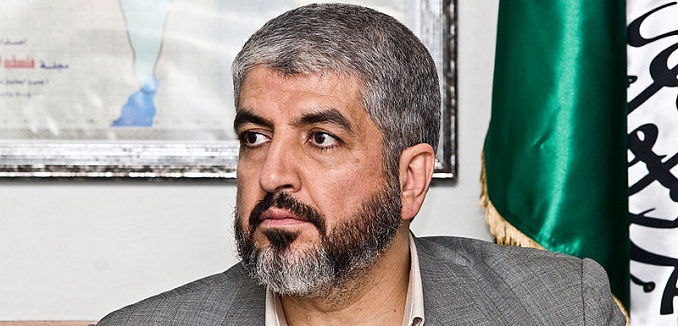Khaled Meshaal, the head of Hamas’s political bureau, had until recently never visited the Hamas-controlled Gaza Strip. Over the years there had been many justifications – a primary one being that it kept him beyond the Israelis’ range – but the upshot was always that he remained physically separated from the terror organization’s center of power.
Meanwhile Meshaal had in recent years sought to align Hamas with the Muslim Brotherhood, Turkey, and Qatar, who together anchored one of three solidifying blocs in the Middle East: the Sunni extremist bloc made up of those three, an Israel-Arab bloc aligned with the United States, and an Iran-led Shiite bloc that included Syria and Hezbollah. The gamble – which required Hamas to distance itself rom its traditional Iranian sponsors – was a disaster. The Muslim Brotherhood collapsed in Egypt, Qatari influence ebbed dramatically, and Turkish power went into free-fall.
The result is that Hamas is facing the prospect – according to Orit Perlov, a research fellow at the Israel-based Institute for National Security Studies – of all-out collapse. Perlov’s analysis echoes that of Washington Institute Fellow Ehud Yaari, who in July argued that diplomatic missteps and economic dislocation had triggered “one of its most testing crises ever” for Hamas. Officials from the group have themselves been forced to acknowledge that “the situation is not good and of course we are under pressure.”
Now top Hamas officials are expressing deep dissatisfaction with Meshaal for bungling the group’s relationship with Iran. Veteran Israeli journalist Shlomi Eldar yesterday night published remarkable quotes from Hamas figures blasting Meshaal for living in Qatar rather than in the Hamas-controlled Gaza Strip, a proxy for overall dissatisfaction with his leadership:
The Hamas sources I talked with have long since raised the argument that Meshaal no longer has an excuse to continue to live in another Arab state besides Palestine — in other words, Gaza. “Enough, this is a different era,” said an official from the movement. “It’s about time that he return home to his nation and, like everyone else, feel what it’s like to live in Gaza.” He brought the example of Imad al-Almi, one of the movement’s leaders, who decided to return and settle with his family in Gaza, after the movement’s offices were closed in Damascus… Hamas is isolated today not only because the Muslim Brotherhood has been sent packing from Egypt, but also because of its shaken relationship with Iran and, of course, Syria. Meshaal had placed his bets on Qatar to replace Tehran as the movement’s main ally, but Qatar emerged as weak as a broken reed.
Inside Gaza a rival camp has emerged led by Mahmoud al-Zahar, who is pro-Iran to such a degree that he had already become persona non grata in Egypt before the Muslim Brotherhood was removed from power. It is unclear whether even a reconciliation with Iran – which is already underway – can quickly restore Hamas’s stature.
Jonathan Schanzer, vice president of reseach at the Foundation for Defense of Democracies, has called on U.S. policymakers to deliver a deathblow to the now-weakened terror group before it can reconsolidate and restore its lifelines to the outside world.
[Photo: trango / Wiki Commons]




